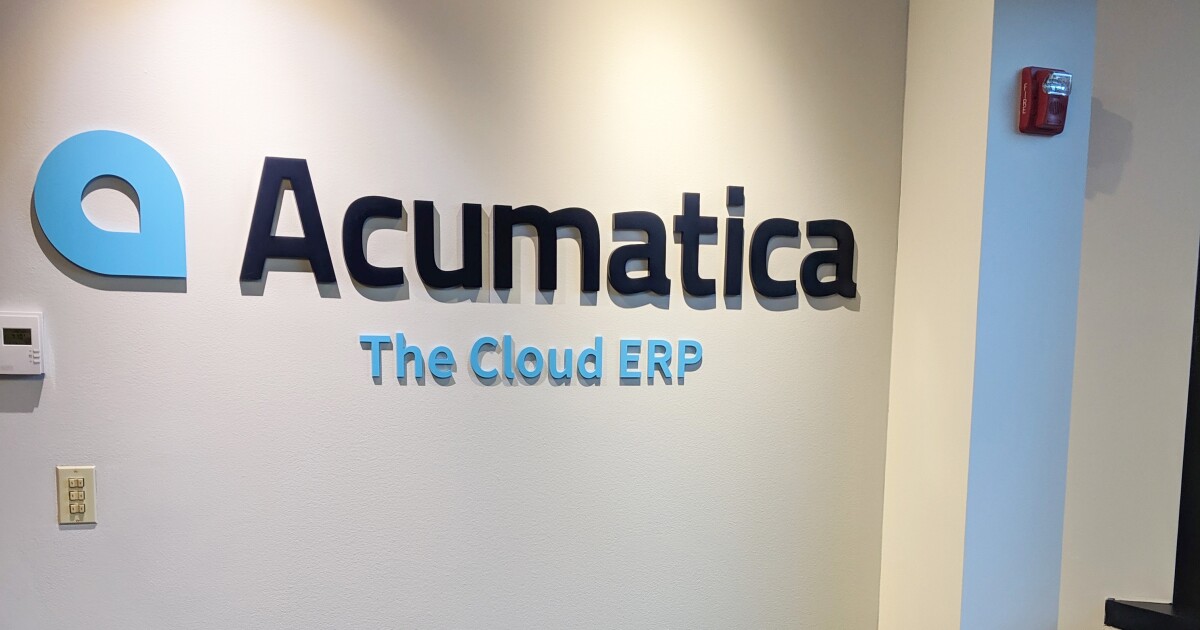Cloud solutions provider Acumatica announced the release of its Professional Services Edition, made to help support accounting and project management tasks for consultants, engineers, architects and other professionals.
“These industry trends and direct feedback from the Acumatica Community were the main drivers for creating the Professional Services Edition, with customers, partners and developers voting it a must-have solution,” said Jeremy Larsen, vice president of product management at Acumatica. “The professional services industry is an underserved market for technology companies, providing a significant opportunity for innovation. As the fourth-largest vertical of customers we already serve, our partners have expressed strong enthusiasm about the potential impact of this release.”
The business management solution was built to address the unique challenges faced in the professional services industry, such as inefficiencies in quote-to-project setup, industry-specific billing rate structures, and customer support management. Features includes project accounting, compliance management, and AI-driven workflow automation.
Specifically, users have access to Acumatica Financial Management, which has standard financial processes (GL/AP/AR) and reports, with additional options for multi-company, multicurrency, intercompany accounting, fixed assets, and cash management. They can also access accounts payable cost transactions related to progress billing lines from the pro forma side panel for timely vendor payments and increased billing accuracy, and tie revenue recognition to project milestones or deliverables.
It can also progress billing by percentage of completion or by quantity. Users can also manage AP workflows, from entering an invoice through approval routing and checks. Meanwhile, customer billing capacities, driven by real-time project costing, provide up-to-date labor, material, equipment, and other costs, letting users identify problem areas in current jobs and improve future project estimates.
The Professional Services Edition also boasts the ability to capture time and expense from any device, entries for which then flow to project accounting for costs and expenses related to projects or specific project tasks. Billable activities can also be marked up depending on the project, task, employee, or activity performed. The solution also has integrated payment capacities that automates accounts receivable processing to reduce back-office workloads and get paid faster.
Other payment-related features include click-to-pay links, and a self-service portal which streamlines communication with push notifications, giving customers access to support cases and payment options. The software can also specify tax calculations directly in the project and automatically retrieve and calculate all invoices, purchase orders, subcontracts, and expenses.
Project management capacities include the ability to access a complete view of project details, letting users manage and track all activities, issues, and changes, including daily field reports, actual costs, and cost projections from one central area. They can also ensure resource availability to allocate staff, equipment, and technology by team, department, and timeframe, letting users assign tasks and workflows to manage project resources and tie the costs to the project budget. Field reporting and mobility features help ensure everyone has the same project data from the field or anywhere they work and remotely enter time and expense details. There are also project productivity and insights features which use side panels for a quick and comprehensive view of key project data without navigating out of the current window.
The new edition also features embedded customer relationship management solutions that help firms to keep detailed records of client interactions, proposals, manage contracts, payments, renewals, and compliance documents. They can also control cost overruns by automating project commitments and change order processes, meaning users can manage back charges or reduction in vendor commitments through the entry of a negative change order, as well as streamline change orders for multiple projects with unit rate changes, custom retainage, and cost-only change requests.
“Professional services firms face intense competition and require advanced business management technology to enhance operations and drive future growth,” said Jason Leveson, principal at Revive ERP, an Acumatica partner. “Acumatica’s Professional Services Edition is a smart step in providing these firms with the tools they need to stay agile, scale effectively and maintain a competitive edge in an ever-evolving market.”
The Professional Services Edition joins Acumatica’s existing suite, which includes the Construction Edition, Manufacturing Edition, Distribution Edition, Retail Edition and General Business Edition.


 Finance1 week ago
Finance1 week ago
 Accounting1 week ago
Accounting1 week ago
 Economics1 week ago
Economics1 week ago
 Personal Finance5 days ago
Personal Finance5 days ago
 Personal Finance4 days ago
Personal Finance4 days ago
 Economics1 week ago
Economics1 week ago
 Personal Finance4 days ago
Personal Finance4 days ago
 Economics5 days ago
Economics5 days ago












